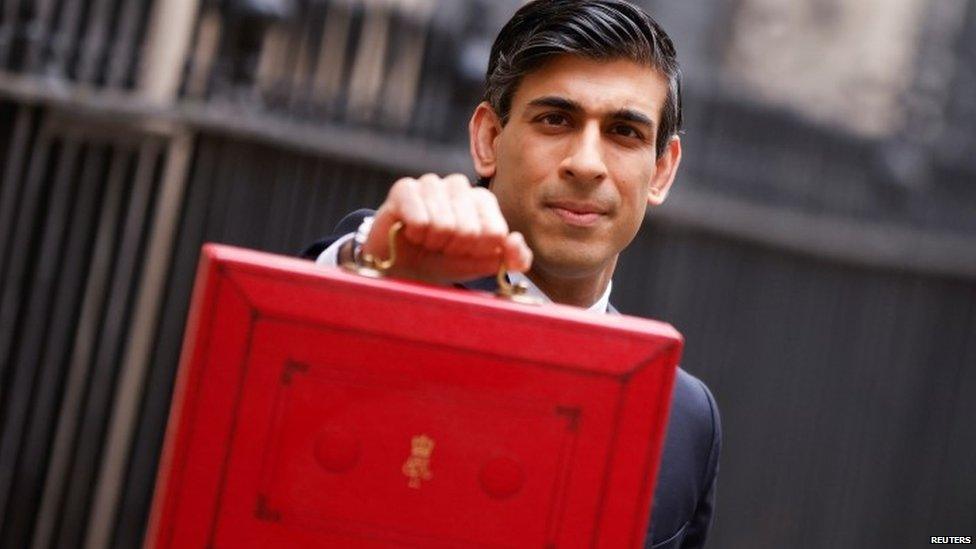Budget 2021: What would Sunak's pay freeze decision mean in Wales?
- Published
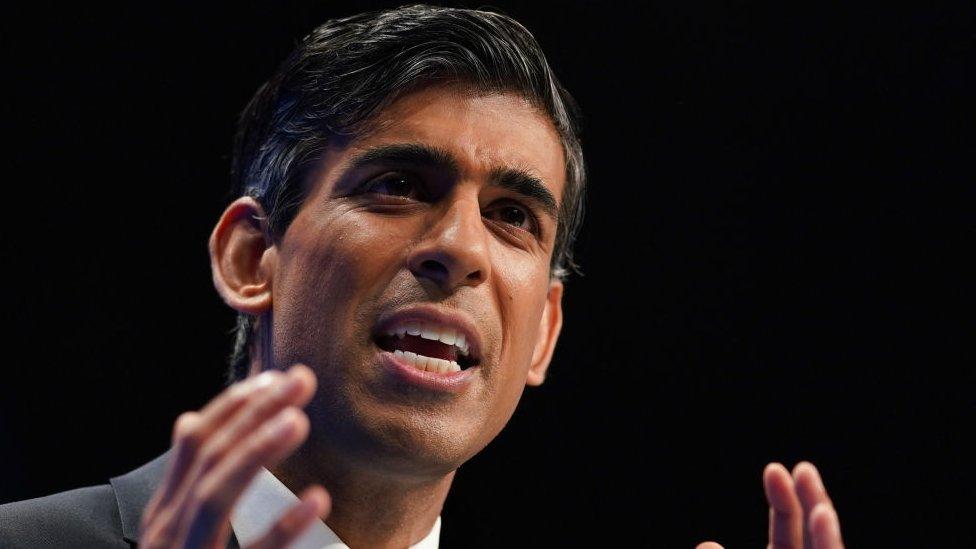
On Wednesday Chancellor Rishi Sunak is expected to scrap a pay freeze for public sector workers at his Budget on Wednesday.
On the face of it, it has big implications in Wales, where 30% of the workforce is in the public sector.
But many of the 431,000 working for government bodies have pay rates that are decided in Wales, rather than by the Conservative UK government.
The picture is complicated, with pay negotiations and other decisions playing a role too.
Who would it affect in Wales?
The public sector pay freeze was imposed by the chancellor during winter 2020.
It excluded NHS staff but covered much of the UK's civil service, and in Wales meant that people working for UK government bodies did not get a pay rise. They include the Department for Work and Pensions, the DVLA and HMRC.
Pay freezes were also implemented in the police and the armed forces.
However workers earning less than £24,000 were promised an increase of at least £250.
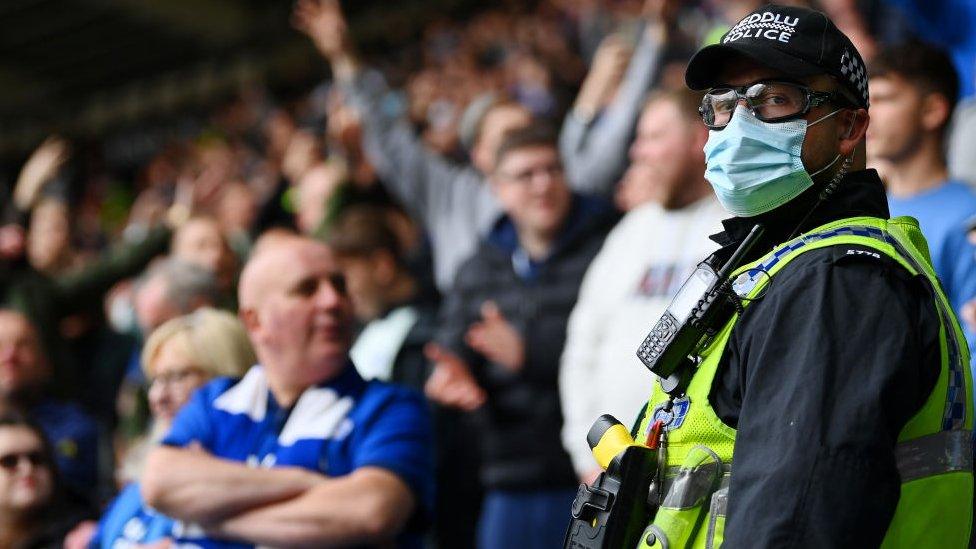
Police were among those affected
When could they get a pay rise?
The announcement does not necessarily mean your pay will go up. Any rise, if implemented, will not come until the new financial year in April.
Independent pay review bodies would still need to make their recommendations, and then the UK government does not have to accept them.
So there are more decisions to come, including potential pay negotiations with unions - and potential rows if workers do not like what they are offered.
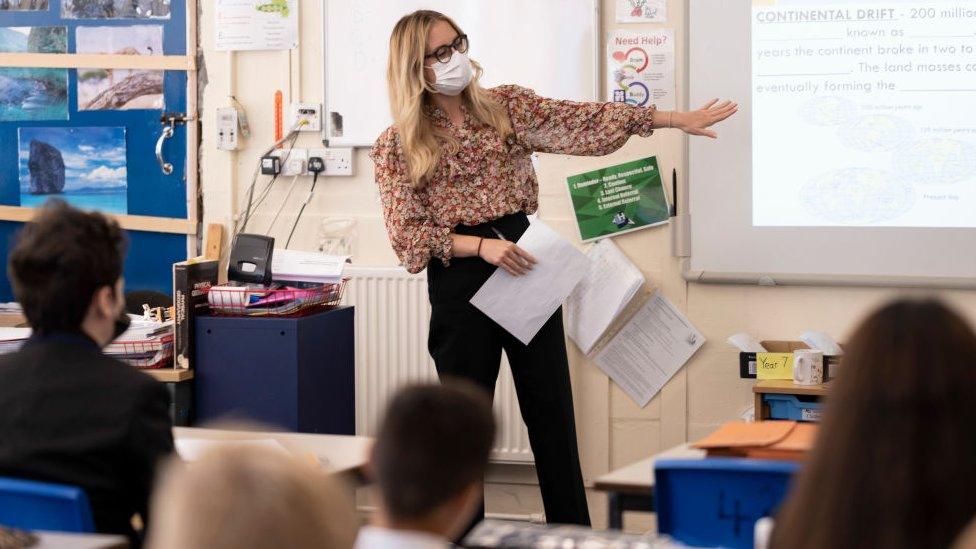
Teachers' pay in Wales is controlled from Cardiff - and there was a small rise this year
Who would it not affect?
Teachers' pay was hit by the freeze in England but not in Wales, where Labour ministers based in Cardiff make the decisions.
They were offered a 1.75% pay rise by the Welsh government this year, but it said it got no extra cash from the Treasury to pay for it.
Welsh civil service pay - those who work for the Welsh government - is not included, and nor is NHS pay, where a 3% pay rise is planned.
There are other public sector bodies which were not covered by the pay freeze anyway - including firefighters and council workers, and where negotiations also take place on a wider basis than just Wales.
Organisations like the National Museum for Wales and the National Library - which are funded by but not part of the Welsh government - set their own pay too.
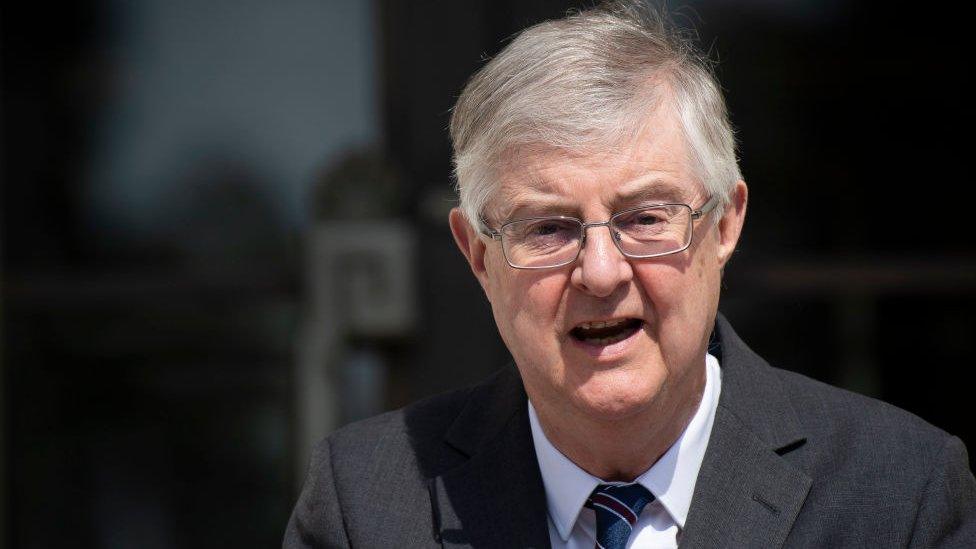
Mark Drakeford said he could not magic money out of the air for nurses
What could it mean for the Welsh government?
In theory, if the UK government decides to spend more on pay in areas which are devolved like education, then there may be more money for the Welsh government to spend on the same thing through knock-on extra spending.
But in practice, the money the Welsh government gets to spend is determined by many different things and boosts in one area do not always mean more money overall.
That could make it harder for ministers to follow pay rises made over the border if cuts to money from other services need to be found.
The restrictions for the Welsh budget - a finite pot of cash ministers have to fund education, the NHS and other devolved services from - has been given as a limiting factor for pay rises here.
For example, there is a union dispute over the 3% pay rise offered to nurses.
First Minister Mark Drakeford has said that as much as he would like to pay them more, he cannot "magic money out of the air".
On Tuesday he told BBC Wales if the Chancellor says he will be funding pay rises in England at the Budget, and money comes to Wales as a result "we will be able to follow suit here".
"If his plan is simply to say, public sector wage freeze is over, but there's no money to pay for it, then there will be no money coming to Wales to pay for it either."
Finance experts at Cardiff University recently improved their outlook for the Welsh budget, but still say that pay increases "will be a big part of the pressure".

Inflation and rising energy prices have sparked concerns about the cost of living
What about the cost of living?
Unless pay rises keep up with inflation, unions say people will still struggle with the cost of living.
Inflation stands at 3.2% - 4.9% when mortgage payments are included. Energy prices are going up, and national insurance contributions are expected to rise by 1.25%.
The PCS union, which represents workers in devolved and UK-wide services, said repeated pay freezes since 2010 meant "members have overwhelmingly seen standards of living slip back".
Ministers have acknowledged the pressure on workers. Conservative Business Minister Paul Scully told BBC Breakfast: "We know this is a difficult time for the economy, for people in the country in terms of the cost of living."
Mr Sunak himself said the decision to freeze pay was because of the economic impact of coronavirus, and the uncertainty it posed.
Related topics
- Published26 October 2021

- Published26 October 2021
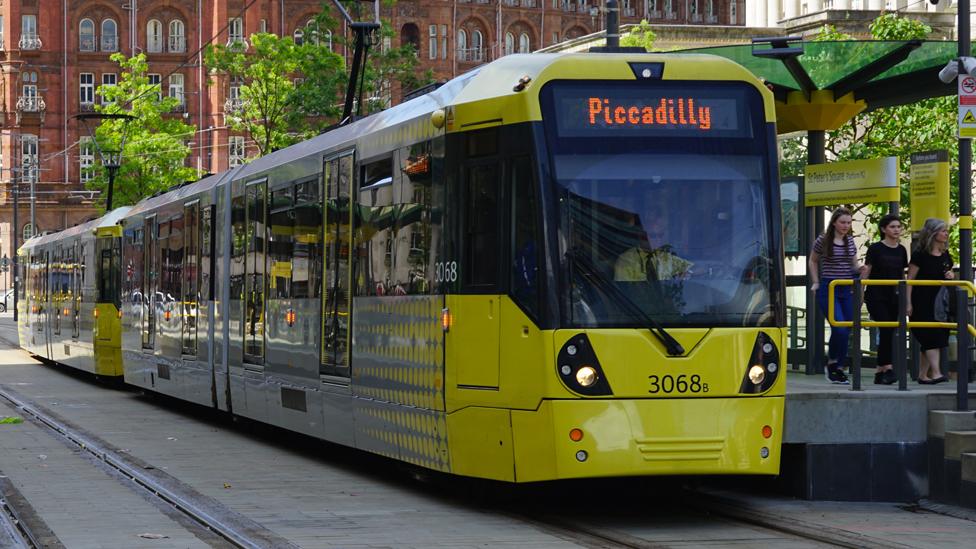
- Published26 October 2021
